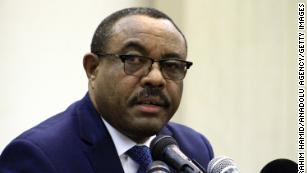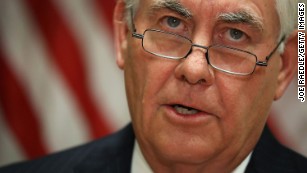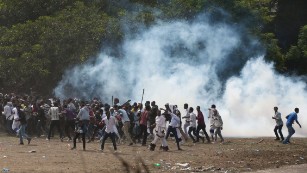
EPRDF regime's self image of ethnically Balkanized Ethiopia, established by late Dictator Melese Zenawie. Freedom of Press is Dead in ethnocracy based irridentism. Fertile land is grabbed by foreign speculators, over 5 million are starving. 500'000 kids are on the streets. Millions are displaced by force. The regime is arming proxy warriors. Dams are built wantonly risking the existence of millions of indigenous people. Eritreans Moles are Ruling even after seceding in 1991.
Translate
Wednesday, December 26, 2018
Saturday, October 20, 2018
Ethiopia's PM changed his version says "soldiers who marched on palace sought to 'kill me'
Hundreds protesting soldiers, some of them armed, went to see the prime minister odddice - reportedly to demand a pay rise. The 42-year old leader doing push-ups with smiling men in fatigues and red berets, some of whom stood to snap photos on their mobile phones.
A week after he changed his version and claims:
“The approach taken (by the soldiers) was not only unconstitutional and dangerous, but the intent was also to abort reforms,” Abiy address to parliament in which he gave details of the incident after making new version shows how he masters the situation though pushup.
And added: “Had we not taken a cautious approach, it could have led to a dangerous situation. All this took place without a single bullet being fired and a single loss of life,” he said, adding unspecified forces “regretted missing out on the opportunity to kill” him.
But his actions have failed to curb violence between different ethnic groups against each other. About 2.8 million people out of a population of 100 million have been displaced since he came to power.
In June, a grenade attack attended by tens of thousands of his supporters rattled a rally moments after he finished giving a speech, killing two people. Last month, Ethiopian prosecutors charged five suspects with terrorism over an attempt to kill Mr Abiy in a grenade attack at a rally in June.
In recent months, thousands of people were arrested on suspicion of involvement in violence in the capital and its outskirts that left dozens of people dead.
“Lawlessness is the norm these days. It is something that is testing the government,” Abiy said in parliament. “Unless we collaborate and work hand-in-hand, we may not exist as a country anymore.”
Prof. Muse
Tuesday, October 9, 2018
Thursday, July 19, 2018
Warning of Debretsion Gebremichael to PM Abiy
Following a meeting held in early July, the president of the Tigray National Regional State (TNRS), Debretsion Gebremichael, has warned the office of the prime minister Abiy Ahmed Ali that the government has a duty to maintain constitutional order. The meeting had been convened in the immediate wake of the pro-government marches on 1 July during which demonstrators in the Amhara region had flown the former Ethiopian national flag, which the Tigray People’s Liberation Front (TPLF) views as a symbol of domination over the Amhara ethnic community.
Moreover, manifestations of anti-Tigrayan sentiment were observed in certain towns in that region. The TNRS has, therefore, urged the federal government to uphold the constitution, which in the view of the Tigrayans has been violated, stressing that a failure to do so will plunge the country into a major political crisis. In view of all of this, Debretsion Gebremichael has called on Tigrayans to be vigilant and to save the country from the threat of disintegration
Saturday, July 7, 2018
Ethiopia Removes ONL, ONLF & Ginbot 7 Rebel Group From Terror List
The Ethiopian Parliament on Thursday unanimously approved a Council of Ministers resolution to rescind "terrorist" tags on three rebel groups. The Oromo Liberation Front (OLF), the Ogaden National Liberation Front (ONLF), and Patriot Ginbot 7 will not carry the "terrorist" appellation anymore.
No international agency or country has ever labeled any of the three organizations as terrorist. Since he came to power on April 2, Prime Minister Abiy Ahmed has called on all rebels to join the democratic process.
His overtures were met with positive responses as senior OLF leaders came to the capital Addis Ababa in May to meet senior government officials.
Similarly, Patriot Ginbot 7, a rebel group that took up arms from inside the Eritrean border, announced two weeks ago that it had suspended the armed struggle.
The three organizations were labeled "terrorist" in 2011.
Over the past three months, Abiy Ahmed's government has released thousands of political prisoners, including rebel leaders such as Andargachew Tsige of Ginbot 7, who was in a maximum security cell since his arrest in Yemen four years ago.
Saturday, June 23, 2018
Wednesday, June 20, 2018
Saturday, June 16, 2018
Monday, June 11, 2018
Wednesday, June 6, 2018
Saturday, June 2, 2018
Monday, May 28, 2018
Ethiopia pardons top rebel leader Andargachew Tsige

ADDIS ABABA: Ethiopia on Saturday ordered the release of a top member of an armed opposition group whose 2014 arrest in Yemen was internationally condemned.
Attorney general Birhanu Tsegaye said Andargachew Tsige of the outlawed Ginbot 7 group would be among 756 people released in a “special” round of pardons, the state-affiliated Fana Broadcast Corporate reported. “The decision was made as the individuals have demonstrated remorse, the attorney general said, adding it is also aimed at broadening the political space,” Fana reported.
Andargachew was arrested in June 2014 at Yemen´s Sanaa airport en route to Eritrea and transferred to Ethiopia the same day, sparking criticism from Britain. Andargachew also holds British citizenship.
The Foreign Office slammed Yemen for extraditing Andargachew in defiance of international law and urged Ethiopia to ensure his safety.
Ethiopia, which considers Ginbot 7 a terrorist group, had accused Andargachew of plotting attacks and training opposition groups in its neighbour and arch-foe Eritrea.
Shortly after his arrest, Andargachew appeared on state television, proclaiming “peace” with Ethiopia and vowing to “calm down.” Rights groups have criticised Ethiopia for using association with the group as a reason to prosecute politicians and journalists opposed to the one-party rule of the Ethiopian People´s Revolutionary Democratic Front.
Monday, May 14, 2018
Ethiopian businesses disappointed by new PM's economic stance
Aaron Maasho, Maggie Fick
ADDIS ABABA(Reuters) - Local business leaders at a banquet in Ethiopia’s capital last week were hoping the new prime minister Abiy Ahmed would tell them he planned to loosen the state’s grip on the economy.
He took power on April 2 promising a “new political beginning”. But four people who heard his dinner speech said he signalled he would stick with policies to keep the government’s hand in sectors such as infrastructure, banking and telecoms.
Ethiopia has let foreign companies such as fashion chain H&M set up factories in a decade-long push to change the economic focus from agriculture exports, such as coffee, to manufacturing. Other sectors are also open to investors.
Analysts say the government must free up the economy further to sustain annual growth rates it estimates averaged nearly 10 percent in the past decade and to create jobs.
Anger over high unemployment fuelled violence over ethnic tensions that led to the resignation of Abiy’s predecessor Hailemariam Desalegn in February. [L8N1RA30M]
But those at the speech said Abiy did not outline plans to open up new sectors, a move which could also ease a shortage of foreign exchange. He said state spending on infrastructure, which has crowded out local companies, would continue.
“Point blank, Abiy said that demanding the state be out of the business sector is not feasible,” said a hotel owner who was at the dinner. He said Abiy was responding to the business leaders’ requests.
“The state will remain in the business sector.”
Abiy named 10 new ministers to his cabinet on Thursday to clear a path for political reform. He told the new ministers to tackle graft and streamline bureaucracy. [L8N1RW1OI]
But he retained the rest of Hailemariam’s 34-strong cabinet, including the finance minister.
That is consistent with remaining a “developmental state”, the term the four businessmen said Abiy used at the banquet. His office did not respond to requests from Reuters for comment on his policies.
Economists describe a “developmental state” as one where the government is deeply involved in the economy. The philosophy was embraced by rebel-turned-statesman Meles Zenawi, who died in power in 2012. It continued under Hailemariam.
“It’s frustrating to see that for all Abiy’s intentions to bring about changes in politics, that is not translating into the economic sector,” said Tsedale Lemma, the editor of the Addis Standard news website.
“MORALISTIC TONE”
Local businesses say they find it hard to compete against the state.
The government has spent hundreds of millions of dollars in recent years building roads and railways to support the manufacturing expansion.
Many of the projects are funded with foreign exchange. Some is borrowed domestically, depriving local businesses of loans to fund their own projects.
It also depletes foreign exchange reserves that could be used to support other areas of the economy. This means it is hard for foreign businesses to send profits home and for local businesses to import.
Access to loans and hard currency is the “biggest headache” for businesses, Endalkachew Sime, secretary general of the Ethiopian Chamber of Commerce said.
The International Monetary Fund said foreign reserves at the end of the 2016/17 fiscal year stood at $3.2 billion, less than the cost of two months of imports. The government does not regularly release foreign reserves figures.
The hotel owner said Abiy had lectured the business leaders at the dinner with a “moralistic” tone for buying foreign cars during a foreign exchange shortage.
Endalkachew said Abiy should listen to the participants with a “big open ear”.
FACTORIES OPENING UP
State investment in infrastructure has been the largest driver of gross domestic product growth.
Coffee is the biggest export, and over 70 percent of the population is employed in farming. Gold, sesame, khat and livestock are also major exports.
Abiy looks set to continue Hailemariam’s plan to shift away from agriculture to manufacturing, currently 8 percent of GDP.
The government has already welcomed Chinese, Turkish, Indian and Western investors in factories making textiles, garments, leather goods and processed agricultural products.
This has contributed to a sharp rise in foreign direct investment. The Ethiopia Investment Commission’s spokesman said FDI was $2.2 billion for the first half of the 2017/18 fiscal year, a 22 percent increase from the same period a year earlier.
Other sectors have also had foreign participation. The government sold the tobacco company, National Tobacco Enterprise, to a Japanese tobacco company in December for $434 million. Heineken and Diaigeo bought the 2 state-run breweries.
Unilever opened a factory producing soap and other products in 2016 and wants to expand.
The government is also looking for partners in the sugar industry.
In retail, foreign companies may not open their own branches although they can bid for contracts with a state wholesalers.
Sheraton (SHPF.BO), Hilton (HLT.N), Radisson, and Marriott (MAR.O) have hotels in the capital. AccorHotels (ACCP.PA) is planning to open three.
Ethiopia has also said it would like to create a secondary local currency bond market, which could increase liquidity for local and foreign companies.
SHUT OUT
Nevertheless, some of the big sectors are still closed. Ethio Telecom is one of Africa’s few remaining telecoms monopolies and the state-owned Commercial Bank of Ethiopia the largest financial institution.
Economists say industries growing in neighbouring Kenya, such as technology start-ups, are stifled by red tape and low internet penetration. There is also no stock market.
Alemayehu Geda, economics professor at Addis Ababa University, estimates the unemployment rate, while officially at 18 percent, is closer to 50 percent. Reducing it will be key for long-term stability in Ethiopia, he said.
“The prioritisation by the government of the manufacturing sector is logical as it would create many jobs,” said Michael Ghebru, Chief Executive of Belayab Foods and Franchise PLC, which opened the first of ten planned Pizza Hut restaurants in Ethiopia this month, the first major foreign food franchise.
“But there are other sectors that are bringing in a lot of revenue and employment as well so their challenges should also be put into consideration.”
Editing by Anna Willard
Monday, May 7, 2018
Friday, April 13, 2018
Monday, April 2, 2018
Wednesday, March 14, 2018
2,000 Ethiopians flee to Kenya as army kills 9 civilians
The Ethiopian soldiers killed the civilians after mistaking them for members of the banned Oromo Liberation Front [Courtesy] At least 2,000 Ethiopian asylum seekers have fled to the north Kenyan town of Moyale, the Kenya Red Cross Society (KRCS) said yesterday. Red Cross said the displaced people were hosted in four centres - Butiye, Somare, Cifa and Sessi. Some are staying with relatives and well-wishers, KRCS added. "The asylum seekers began streaming in on Saturday, March 10, 2018, around 10pm, majority of them being women and children," KRCS said in a statement yesterday, adding that it had provided humanitarian assistance. This emerged as residents of a town in Ethiopia's restive Oromia region yesterday disputed the government's characterisation of a deadly shooting that left nine civilians dead as an accident. Ethiopian State media said on Sunday that soldiers shot nine civilians near Moyale on the Kenyan border after mistaking them for members of the banned Oromo Liberation Front who were trying to sneak into the country. But two residents who spoke to AFP said the shooting took place in an area known for its opposition to the government, and came amid worsening relations between citizens and soldiers deployed to Moyale under a nationwide state of emergency declared last month. In Kenya, the County Government of Marsabit has provided the refugees with food and "more support is expected following the formation of a sub-county steering group that aims to effectively address the issue". Security was on Sunday reinforced in Moyale to deal with the arriving refugees, most of them women and children. The refugees were accommodated at local schools with hopes the situation would calm down.
Read more at: https://www.standardmedia.co.ke/article/2001272961/2-000-ethiopians-flee-to-kenya-as-army-kills-9-civilians
Read more at: https://www.standardmedia.co.ke/article/2001272961/2-000-ethiopians-flee-to-kenya-as-army-kills-9-civilians
Friday, March 9, 2018
Thursday, March 8, 2018
Ethiopia's next leader faces tough challenge of reuniting the nation
Awol K. Allo, Special to CNN
Updated 1046 GMT (1846 HKT) March 7, 2018
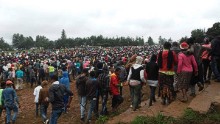
Photos: What's behind the Oromo protests?
The protests took place in more than 200 towns and villages across Oromia, Ethiopia's largest region, and were attended by hundreds of thousands of people.
Hide Caption
3 of 4
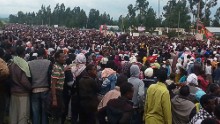
Photos: What's behind the Oromo protests?
The Oromo people are the single largest ethnic group both in Ethiopia and the Horn of Africa.
Hide Caption
4 of 4
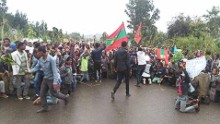
Photos: What's behind the Oromo protests?
Ethnic Oromos from Mogor town, West Shewa Zone, participating in the nationwide protest on August 6 2015.
Hide Caption
1 of 4
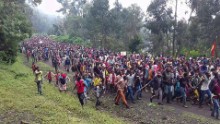
Photos: What's behind the Oromo protests?
Protestors clashed with security forces and more than 100 people were killed, according to Amnesty International.
Hide Caption
2 of 4

Photos: What's behind the Oromo protests?
The protests took place in more than 200 towns and villages across Oromia, Ethiopia's largest region, and were attended by hundreds of thousands of people.
Hide Caption
3 of 4

Photos: What's behind the Oromo protests?
The Oromo people are the single largest ethnic group both in Ethiopia and the Horn of Africa.
Hide Caption
4 of 4

Photos: What's behind the Oromo protests?
Ethnic Oromos from Mogor town, West Shewa Zone, participating in the nationwide protest on August 6 2015.
Hide Caption
1 of 4

Photos: What's behind the Oromo protests?
Protestors clashed with security forces and more than 100 people were killed, according to Amnesty International.
Hide Caption
2 of 4




Awol K. Allo is a lecturer at the Keele University School of Law. He writes on the issues behind the longstanding protests by Ethiopia's largest ethnic groups, the Oromos and Amharas.
He writes as US Secretary of State Rex Tillerson visits the country on his Africa tour.
The opinions expressed in this article are solely those of the author.
(CNN)Ethiopia is facing an upheaval of unprecedented magnitude. On February 15, the country's Prime Minister Hailemariam stepped down in a surprise move that plunged the country into uncertainty.
A day later, his government declared a nationwide state of emergency, the second such decree in less than two years.
Confronted by relentless and large scale ethnic protests, Hailemariam's government was forced to make highly unusual concessions.
Early in January, the government announced a plan to widen the political space and foster national consensus, including the decision to release political prisoners.
To fulfill that pledge, thus far, the government has released about 8,000 political prisoners, including prominent opposition figures, scholars and journalists jailed over the last two decades.
However, as Hailemariam's abrupt resignation and the subsequent imposition of a martial law highlights, the crisis in the country is explosive and requires an urgent, robust and courageous response by all stakeholders.
US influence
The visit by America's top diplomat, Rex Tillerson, could not have come at a better time. According to the State Department Spokesperson, Tillerson is scheduled to discuss with countries on counter terrorism, peace and security, good governance, and trade and investment, all issues particularly relevant to the crisis in Ethiopia.
Although the United States has long lost its reputation as a shining exponent of human rights and democracy in the region, the United States still wields enormous power over Ethiopia and can leverage its diplomatic power to help steer the country out of the crisis.
Three decades of US policy on Ethiopia has not worked. The ruling Ethiopian People's Revolutionary Democratic Front (EPRDF), which ruled the country with iron-first since it came to power in 1991, is on the verge of unraveling.
The crisis facing the country, a very important geo-strategic partner of the US in the region, requires an urgent, robust and courageous response by all stakeholders.
Tillerson must emphasise to Ethiopian authorities that security and human rights are not two mutually exclusive ideals but rather interdependent and mutually reinforcing. As the United States Embassy in Ethiopia stated recently stated, the response to the crisis can only be 'greater freedom, not less."
Secretary Tillerson must meet with the opposition and the leadership of EPRDF's constituent members, particularly the the Oromo People's Democratic Organization (OPDO) and listen to their concerns.
Political dominance
The ruling Ethiopian People's Revolutionary Democratic Front (EPRDF), which controls seats in parliament and regional assemblies, is on the verge of unraveling, and it is woefully unprepared to meet the challenges facing the country.
The party was created in 1989 by the Tigrayan People's Liberation Front (TPLF), a party that purportedly represents the Tigray ethnic group, about six percent of Ethiopia's estimated 106 million people.
When the downfall of the military dictatorship of Mengistu Hailemariam became imminent, TPLF engineered a coalition to bolster its legitimacy.
Like the EPRDF, the other three members of the coalition - the OPDO, the Amhara National Democratic Movement (ANDM), and the Southern Ethiopian People's Democratic Movement (SEPDM) - were created by TPLF.
Over the last 27 years, TPLF used these forces, with little or no resistance, to rule the country with an iron fist.
Tigrayan domination of the country's political and economic lives are the rallying cries of both the Oromos and Amharas, as competing interests between the coalition parties have plunged the country into the current crisis.
The Oromo and Amhara protests
Three years of relentless protests by the Oromos and Amharas, have irreversibly changed this master-servant relationship.
In Oromia, the epicentre of the Oromo protests, protesters invoked historical marginalization of the Oromo people, emphasizing how their perspectives, experiences, and memories have been pushed to the margin and hidden from the mainstream Ethiopian perspectives.
Their articulation of the issues and their large-scale mobilization forced the OPDO to reconsider its positions, and eventually challenge TPLF's hitherto unquestioned hegemony.
Emboldened by the waning influence of the TPLF and the political awakening taking root in Oromia, the largest and wealthiest of Ethiopia's nine linguistic-based states, the OPDO is now upping the ante by demanding the chairmanship of the EPRDF and the office of the Prime Minister.
Ethiopia's next leader
EPRDF is expected to name a new party leader when its 180-member Council convenes this week in a high stakes meeting. The decision, the most important and contentious vote in its nearly three decades of authoritarian rule, will be consequential both for the party and the country.
If its candidate is not elected, OPDO will face fresh questions from the Oromo public.
Oromos makeup more than almost 40 percent of Ethiopia's population but they have not had a political power commensurate with its size and immense contribution to the country's economy.
There is already a strong sense within the Oromo community that the Ethiopian state and its institutions are hostile to the Oromo, a notion best captured in a 1978 essay titled "Ethiopia's Unacknowledged Problem -- The Oromo."
Ignoring OPDO's quest to take the mantle of leadership requires an enormous amount of effort on the part of coalition partners not to recognize the particular nature of the crisis and what it takes to fix it.
Transformative change
Regardless of who may succeed Hailemariam, Ethiopia's next leader faces the challenging task of reforming and democratizing the EPRDF.
The leader must also unite a deeply divided country behind a democratic and all-inclusive agenda.
It would also mean repealing a slew of repressive legislation, including the anti-terrorism proclamation and the charities and societies law; reviving the press and civil society; reforming the electoral board and the security sector.
Despite widespread fears of uncontrollable violence, the crisis can also be an opportunity that can offer some promise of a hopeful transition. EPRDF has a trust deficit, but most Ethiopians are cautiously optimistic.
If reformists within the EPRDF prevail in the ongoing power struggle and act with the utmost caution, putting country before an individual or party interest, Ethiopia has a real chance for a transformative change, and the US and all other stakeholders must do all they can to enable them.
Subscribe to:
Posts (Atom)
